Six great British firms to buy now
The economic outlook may be uninspiring, but Britain harbours some great homegrown businesses, says Phil Oakley. Here, he tips six great British stocks to add to your portfolio.
Get the latest financial news, insights and expert analysis from our award-winning MoneyWeek team, to help you understand what really matters when it comes to your finances.
You are now subscribed
Your newsletter sign-up was successful
Want to add more newsletters?

Twice daily
MoneyWeek
Get the latest financial news, insights and expert analysis from our award-winning MoneyWeek team, to help you understand what really matters when it comes to your finances.

Four times a week
Look After My Bills
Sign up to our free money-saving newsletter, filled with the latest news and expert advice to help you find the best tips and deals for managing your bills. Start saving today!
Things look pretty gloomy for the British economy right now. The news that we're back in technical recession following two quarters of shrinking GDP won't have shocked many people. The fact is the economy has barely grown at all in the past two years. We're still suffering the fall-out from the financial crisis and with banks still weak and consumers and the government still heavily in debt, the malaise could go on for some time.
But while the economic outlook might be uninspiring, it doesn't follow that you should avoid investing in British companies. Britain is host to some outstanding firms that have proved capable of thriving in good times and bad. So how do you spot them? And which should you add to your portfolio?
Stop someone in the street and ask them to name a great British company and the chances are they'll come up with a big, well-known brand, such as BP, Vodafone or Tesco. There's nothing necessarily wrong with these sorts of companies. Many pay large dividends, which are a key component of the long-term returns from shares. But they're not the sorts of stocks we'll talk about here. Sure, some big firms can still have good growth prospects (as we'll see later), but more often they are mature companies whose days of stellar growth are behind them.
MoneyWeek
Subscribe to MoneyWeek today and get your first six magazine issues absolutely FREE

Sign up to Money Morning
Don't miss the latest investment and personal finances news, market analysis, plus money-saving tips with our free twice-daily newsletter
Don't miss the latest investment and personal finances news, market analysis, plus money-saving tips with our free twice-daily newsletter
Instead, when we talk about great' British stocks, we're looking for those that have the ability to earn high returns on the money they invest in their businesses. Combine this with solid growth and the compounding effect on shareholder wealth can be very powerful. Don't expect to find bargain-basement firms here you have to pay for quality and hold for the long term.
The secret to finding great companies
The main criteria is to look for companies with a consistently high return on capital employed (ROCE). ROCE or return on investment is the amount you receive back in profit as a percentage of what you have put in or invested in a business. The most important thing to consider here is that you must take into account all of the money that goes into the business. That includes money that the company has borrowed, as well as its own money (or equity).
Here's a simple example. Say a group of investors buys some land and builds a factory on it. They then buy the machines and raw materials to make furniture. The total cost is £10m. The investors pay for these assets with £5m of their own money (equity) and borrow £5m from a bank (debt). In this example, the capital employed in the business can be seen as either the value of the assets or the amount of equity and debt. The amount is the same £10m. The investors hope to sell lots of furniture and expect operating profits to average £2m a year, or a return on capital of 20%.
Some analysts prefer to look at return on equity (ROE), excluding debt after all, as a stock investor you are providing equity, not debt. But this is risky, particularly where a firm is highly indebted. Say you buy a house for £100,000, using a deposit (equity) of £5,000 and a £95,000 mortgage (debt). A year later, the house is sold for £105,000. You have made a £5,000 profit on a personal stake of the same amount a very attractive-sounding ROE of 100%. But the return on the total investment (ROCE) is just 5%. The ROE has been magnified by the fact that the initial house value was 20 times the equity stake (£100,000/£5,000).
This is known as leverage. With lots of leverage you can look very smart when values rise. But in this instance, a fall in price of just 5% would wipe you out the high returns could only be achieved by taking on lots of risk. To find firms that are financed in this way, look no further than most of Europe's banks. By using ROCE, which takes all forms of financing into account, you will avoid risky firms that have juiced up low underlying returns simply by taking on lots of debt.
ROCE also helps you avoid firms that mainly grow their profits by spending lots of money. Supermarket giant Tesco is a classic example. It's invested huge amounts in its supermarkets, but actually makes quite modest returns on these assets. Because interest rates are low, profits have still grown strongly (until recently) as the returns on the assets have been higher than the interest bill. But higher interest rates or a downturn in fortunes can leave firms like this exposed.
ROCE also improves your chances of investing in a good business. Firms usually earn high returns because they do something better than others can, or because they have few competitors. Warren Buffett refers to this as a moat' a barrier that protects the business and its profits. However, it is important to investigate this further if you find a business with a high ROCE sometimes high profits can be temporary, as with cyclical industries such as house-building.
So where will you find British firms that fit this mould? There are a few in the FTSE 100, but delve into the FTSE 250 and below and there are plenty of excellent businesses. Here are six to consider three from the FTSE 100 and three from the FTSE 250.
Aggreko
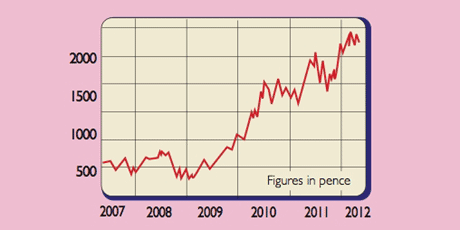
Our first FTSE 100 pick is Glasgow-based Aggreko (LSE: AGK), the world's largest temporary power and temperature control supplier. Much bigger than its largest rival, Aggreko has a great track record of growth while earning high returns. The company has more than 8,000 megawatts of power supply that can be taken anywhere in the world at short notice. For example, its services were used in Japan last year after the tsunami disaster.
Prospects for the company remain attractive. In emerging markets, demand for power exceeds supply. As for developed countries, many have ageing power infrastructure that needs replacing, and governments that can't agree on how to go about it. This will be an expensive, time-consuming process. In order to avoid power cuts in the meantime, there is likely to be increased demand for the temporary power that Aggreko provides.
Aggreko also operates in other markets. Sporting events such as the World Cup and the Olympic Games, along with music concerts, provide regular ongoing demand for its services. The shares are not in the bargain basement why would they be? but they look worth paying up for. Competition is always a concern but Aggreko has proved adept at staying ahead of its peers.
British American Tobacco
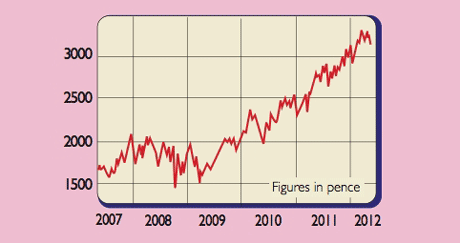
From an ethical perspective, not everyone is comfortable with the idea of investing in tobacco stocks, which is understandable. But from a pure numbers perspective, British American Tobacco (LSE: BATS) is one of the most consistent and financially productive companies around.
Despite the efforts of governments to curb demand for tobacco and the rapid growth of black markets in cigarettes and related products, BAT has kept delivering for its shareholders. Its "power brands" strategy, based on five global cigarette brands, has been very successful. It has also made good acquisitions and become much more efficient. Its high returns on capital employed have been converted into lots of cash and big dividends.
But how will BAT cope with the fall of tobacco demand in many Western markets? One thing in its favour is its pricing power, so it can raise selling prices to offset falling volumes. This can probably continue for a while yet, while the stock's high returns should keep the dividends rising.
GlaxoSmithKline
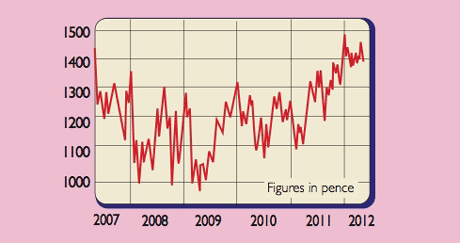
Drugs giant GlaxoSmithKline (LSE: GSK) stands out in what has become a very tough industry. Cash-strapped governments the biggest buyers of pharmaceutical products are bearing down on costs, while expiring patents threaten the profits generated by many established drugs. Yet Glaxo continues to deliver high returns on its investments.
Unlike its peer AstraZeneca, it does not face a patent cliff and the potential loss of a large chunk of its sales. Its top-selling anti-asthma drug, Advair, is not yet facing strong competition from generic rivals, while it has a replacement drug in the form of Relovair. One of Glaxo's key strengths is its ability to bring new products to market to replace drugs with expiring patents. It probably won't be able to make as much money from new drugs as it did in the past, but the returns on its research and development (R&D) spending should be more than respectable.
So Glaxo should be able to keep growing profits for the next few years. While building a foothold in emerging markets will take time, we expect Glaxo to keep delivering high returns and big dividends.
Rotork
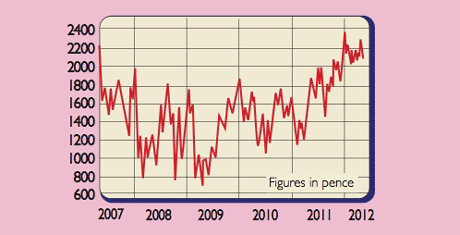
The FTSE 250 is a decent hunting ground for high-returning stocks. Here's where you will find centres of excellence, such as niche manufacturing companies, that are the best in their class the sort of stocks you don't read about much in the press, but whose performances warrant a lot more attention.
Rotork (LSE: ROR) is a good example. For many years, this industrial valves and flow controls manufacturer has been an outstanding British company. During the last five years its average ROCE has been a staggering 68%. Rather than heavy manufacturing, it tends to focus on assembling products, one reason behind its high returns.
But there's more to this great company. Rotork has high levels of exposure to the buoyant oil and gas and power industries and sells nearly half of its products to emerging markets. Its products are highly specialised and crucial to the smooth running and safety of its customers' operations. As a result, demand tends to be less volatile than for products used in large investment projects.
Rotork is well placed to keep growing by taking market share, but has also been entering new business areas in recent years via acquisitions. Another attraction is its immaculate balance sheet, which has no debt. The dividend yield looks modest, but this just reflects the conservative way the company is run. Often, there is an extra dividend paid to shareholders on top as long as the financial strength of the company is not compromised. Rotork shares are rarely cheap, but long-term shareholders should do well.
Spirax-Sarco
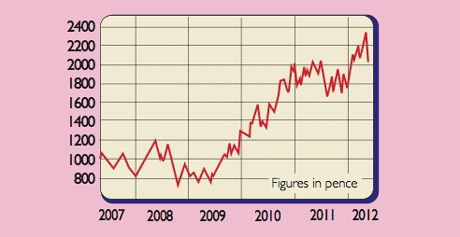
Spirax-Sarco (LSE: SPX) makes and maintains industrial and commercial steam systems, which are used in a range of businesses, including in the food, beverage and pharmaceuticals sectors. The company also provides steam, sterilisation and hot-water solutions for hospitals, and has a specialist pump business.
Nearly half its profits come from emerging markets, and this week the company warned that exchange-rate fluctuations had hit its sales growth. But this should not detract from Spirax-Sarco's solid long-term record. Its steam products have strong selling points in terms of being more energy efficient and environmentally friendly than alternatives.
As well as its high returns, the key investment attraction of Spirax-Sarco is its consistent profit margins and 44 years of continuous dividend increases. It is well placed to keep growing.
Domino Printing Sciences
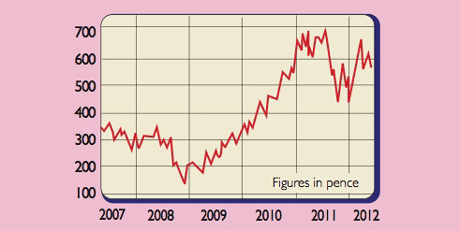
Domino Printing Sciences (LSE: DNO) has grown its dividends every year for the last 26 years. It supplies printers and printing accessories that can be used to trace products. Two-thirds of its sales come from the food and drug industries. Its products are used for applications such as barcodes, best before' dates and tracing codes. Many of its customers are big multi-nationals that need standardised equipment. Around 40% of sales are from printing equipment, the rest comes from supplies and servicing, which tends to be more lucrative.
The company spends plenty of money on R&D to keep its competitive edge, while also investing in new growth areas. An example of this is its investment in technology for barcoding eggs in America, which has introduced new laws on traceability, designed to reduce salmonella outbreaks. Regulation like this will continue to drive growth in demand for Domino's products. Trading is quite tough for now, due to economic conditions in Europe, but this innovative company looks well placed for long-term success.
A fund alternative
If you have doubts about whether paying up for good quality companies is a good investment strategy or you'd rather someone else did the legwork - then take a look at the Unicorn Outstanding British Companies Fund.
Launched in 2006, the fund is managed jointly by John McClure and Christopher Hutchinson. This fund has returned 87.9% over the last three years compared with its benchmark return of 39.3%, according to Citywire. As well as looking for companies with high ROCE, candidates must generate lots of surplus cash, have low debt levels and clear, easy-to-understand accounts.
The fund can invest in smaller firms on the Alternative Investment Market (Aim). At only £9.5m assets under management, this is a very small fund at the moment, and the total expense ratio is a pricey 1.8%, but its track record (which might not be reflected in future performance) suggests it's worth considering.
| Aggreko | 2,167p | £5.8bn | 27% | 28% | 20.6 | 1.1% |
| British American Tobacco | 3,114p | £60.8bn | 25% | 22% | 14.7 | 4.4% |
| GlaxoSmithKline | 1,422p | £71.5bn | 35% | 31% | 11.6 | 5.2% |
| Rotork | 2,027p | £1.8bn | 51% | 68% | 18.5 | 2.2% |
| Spirax-Sarco | 2,043p | £1.7bn | 27% | 25% | 15.5 | 2.6% |
| Domino Printing Sciences | 560p | £635m | 33% | 28% | 15.3 | 3.4% |
Get the latest financial news, insights and expert analysis from our award-winning MoneyWeek team, to help you understand what really matters when it comes to your finances.
Phil spent 13 years as an investment analyst for both stockbroking and fund management companies.
-
 Average UK house price reaches £300,000 for first time, Halifax says
Average UK house price reaches £300,000 for first time, Halifax saysWhile the average house price has topped £300k, regional disparities still remain, Halifax finds.
-
 Barings Emerging Europe trust bounces back from Russia woes
Barings Emerging Europe trust bounces back from Russia woesBarings Emerging Europe trust has added the Middle East and Africa to its mandate, delivering a strong recovery, says Max King